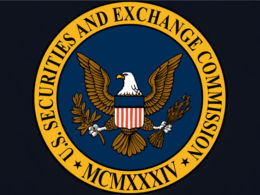The Australian Securities and Investments Commission (ASIC) has released Regulatory Guide 280: Sustainability Reporting (RG 280), offering formal guidance on new sustainability reporting obligations for entities under Chapter 2M of the Corporations Act 2001. The move follows an extensive consultation process with key industry stakeholders.
The guide is intended to assist companies, registered schemes, superannuation entities, and retail corporate collective investment vehicles that are now required to prepare sustainability reports containing climate-related financial disclosures.
RG 280 sets out which entities fall under the new reporting regime, the required content of sustainability reports, and how sustainability-related financial information should be disclosed both within and outside the report—such as in product disclosure statements and other investor materials. It also outlines ASIC’s approach to oversight, including its use of regulatory relief and new powers to issue directions.
The guidance was shaped by feedback received on Consultation Paper 380 (CP 380), released in November 2024. ASIC received 60 submissions from companies, industry bodies, legal and audit firms, academics and consultants. The regulator has expressed gratitude for the broad engagement and noted strong support for regulatory clarity on the new reporting requirements.
Key updates in RG 280 include:
- New sections on climate scenario analysis and scope 3 emissions disclosure
- Targeted guidance for company directors
- Clarified sustainability reporting thresholds
- Revised guidance on labelling sustainability-related information
- Updated direction on disclosing such information outside the formal report
ASIC Commissioner Kate O’Rourke emphasised the importance of high-quality, consistent, and comparable climate disclosures.
“Climate-related financial information that is consistent, comparable and of high quality facilitates confident and informed decision-making by investors and other users of that information,” she said.
“The publication of RG 280 is a critical piece that supports the implementation of these sustainability reporting requirements passed by the Australian Parliament.”
The regulator also outlined its phased and pragmatic approach to enforcement as the new rules are rolled out. It will support reporting entities through guidance and engagement but warned it may initiate investigations where misconduct is deemed serious or reckless, or where an entity fails to comply with its reporting obligations.
ASIC has also granted relief allowing stapled entities to issue consolidated sustainability reports, and is open to considering applications for other exemptions, though it cautioned that novel or complex requests may take longer to assess.
Additional guidance has been made available for value chain participants—including small businesses and farmers—who may be indirectly affected by the new reporting framework.
The sustainability reporting requirements will be introduced in phases over three years, beginning with entities whose financial years start on or after 1 January 2025. Two further cohorts will follow in July 2026 and July 2027, respectively. The disclosures must also comply with the Australian Accounting Standards Board’s AASB S2 standard.





















